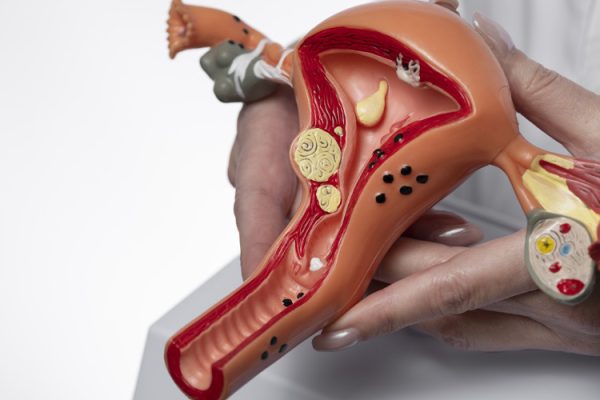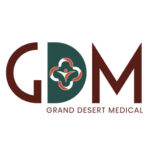Address: 3110 S. Durango Drive, Suite 200 Las Vegas, NV 89117
Phone: 702-629-2986
Follow Us: Instagram
Five Common Women's Health Concerns to Know About
The top five health concerns affecting American women are: heart disease, breast cancer, weight management, ovarian cancer, and gynecological health.
Additional health concerns unique to women also include pregnancy, autoimmune diseases and osteoporosis as well as depression and anxiety.
Let’s take a closer look at the top five:
Heart Disease:
Heart disease is the leading cause of death for women in the United States. In In 2020, 19.5% of women died from heart disease.
To decrease the risk of getting heart disease, blood pressure and blood cholesterol levels must be managed. Women should be encouraged to reduce or quit smoking, another factor that places women at higher risk for heart disease.
Breast Cancer:
Breast cancer is the most commonly diagnosed cancer for women in the United States. It is the second leading cause of cancer deaths among women overall (lung cancer is the number one cause of cancer deaths for women). Breast cancer is the leading cause of cancer deaths for Black and Hispanic women.
An estimated 30% of breast cancer cases are attributed to risk factors that can be modified. These include excess body weight, physical inactivity, and alcohol intake which can be prevented. If women lose weight, increase their physical activity level and decrease their consumption of alcohol, women can reduce their risk of contracting breast cancer.
Early detection of breast cancer begins with getting a mammogram yearly or every other year based on a woman’s family history and her doctor’s recommendation. Advances in breast cancer treatments have substantially reduced breast cancer deaths.
Weight Management:
There is an overwhelming amount of information available on weight loss, so much information that it can create enough confusion to cause women to quickly abandon plans to lose weight instead going forward and gaining weight.
“Hunger, metabolism, body weight, and belly fat” impact weight loss according to Dr. Rachael Link, MD, RD. “Making a few changes in your daily routine can bring big benefits.”
Here are a few of these changes to consider:
1. Ditch the Diet.
If a diet sounds too good to be true, it probably is. Fad diets can promote unhealthy eating habits leading to yo-yo dieting meaning a pattern of losing weight, regaining weight and dieting again. One study of college women showed that eliminating certain foods actually increased cravings and overeating.
To combat this, keep a Food Journal to analyze what you are eating over a period of time – a few days or a week to start. Use this information to assess your dietary intake. Then you can make changes to your diet to implement these suggestions:
A. Reduce Refined Carbs: This means limiting white bread, pasta and prepackaged foods.
B. Eat More Protein: Eat meat, poultry, seafood, eggs, dairy, and legumes. This will reduce cravings, increase feelings of fullness, and boost metabolism.
C. Drink More Water: Low effort, high reward – drinking more water can increase the number of calories burned and reduce the number of calories consumed especially if you drink water before a meal.
2. Get More Sleep.
Multiple studies have associated sleep deprivation with increased body weight and higher levels of ghrelin, the hormone responsible for stimulating hunger.
Furthermore, one study in women showed that getting at least seven hours of sleep each night and improving overall sleep quality increased the likelihood of weight loss success by 33%.
3. Add More Steps to Your Day.
If you don’t have enough time for a full workout, adding more steps to your day is an easy way to burn extra calories and potentially increase weight loss. Simple hacks like taking the stairs instead of the elevator, parking further from the door, or taking a walk during your lunch break can bump up your total number of steps you take in a day and result in burning a few more calories than anticipated.
Your physician can provide information and guidance on the ideal weight for your height and assist you with determining your body type and the areas of your body where you are prone to gain weight.




Ovarian Cancer:
Ovarian Cancer, by contrast, causes more deaths than any other cancer of the female reproductive system. This cancer mainly develops in older women. About half of the women who are diagnosed with ovarian cancer are 63 years or older. Several factors may increase a woman’s risk of developing ovarian cancer.
These include:
- Close family members that have developed ovarian cancer;
- A genetic mutation (a change in a specific gene). Genetic testing can help give a women specific information about what genetic risk factors she has and whether these contribute to the risk of developing ovarian cancer;
- A woman who has (or had) endometriosis (a condition where tissue from the the lining of the uterus grows elsewhere in the body);
- Eastern European or Ashkenazi Jewish background; or
- Women who have never given birth or have had trouble getting pregnant.
Several tests have been evaluated as potential methods of screening for ovarian cancer. The most common screening tests used to detect ovarian cancer if it is suspected are a transvaginal ultrasound and a blood test for the serum marker CA-125. (Serum markers are substances in the blood that can be detected in blood tests.)
The common thread for reducing a woman’s risk of developing these common types of cancers are to make healthy choices like eating right, staying active, and not smoking. It’s also important to follow recommended screening guidelines, which can help detect certain types of cancers early, and to pay attention to your body and what is normal for you.
Gynecological Health:
Gynecological health is important for all women. By having an annual woman’s health exam with a gynecologist, a doctor specially trained for women’s reproductive health, certain types of cancer can be detected and treated earlier.
An annual exam with a gynecologist includes a pap smear and mammogram. These screening tests reveal important information for a woman and her doctor to consider that can lead to early detection of ovarian cancer or breast cancer, and if cancer is detected, allows a woman to participate in treatment earlier, which could potentially save her life.


